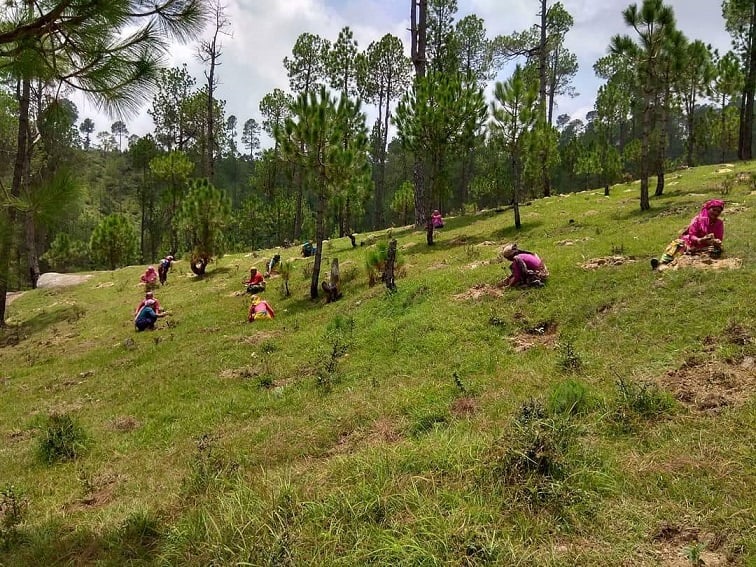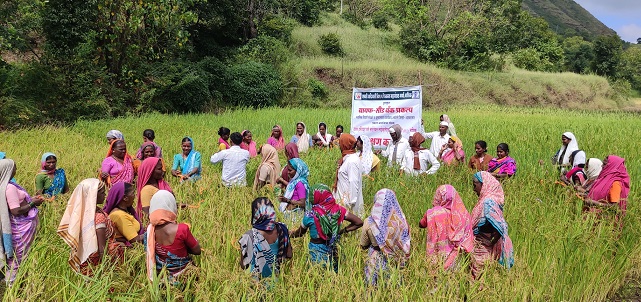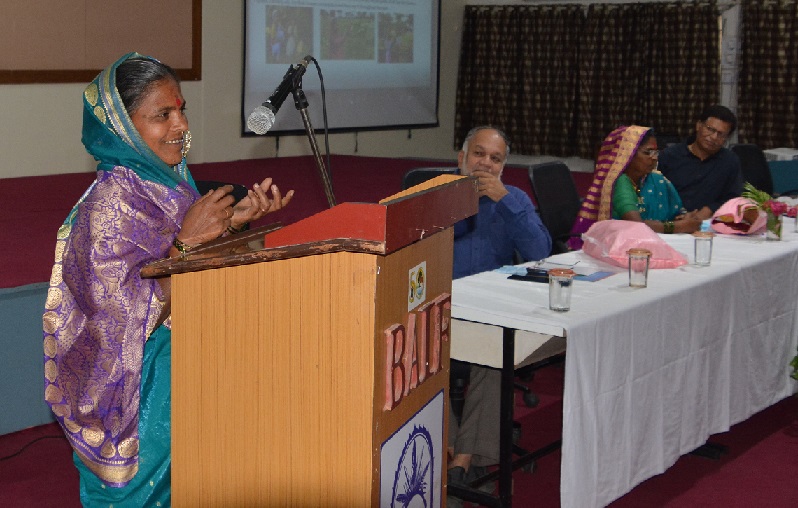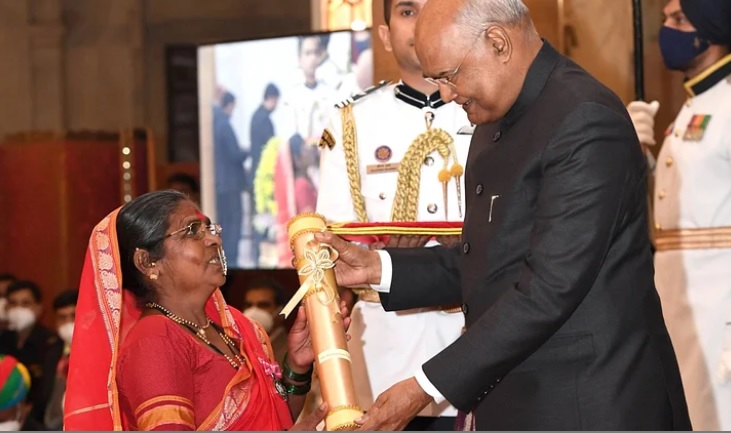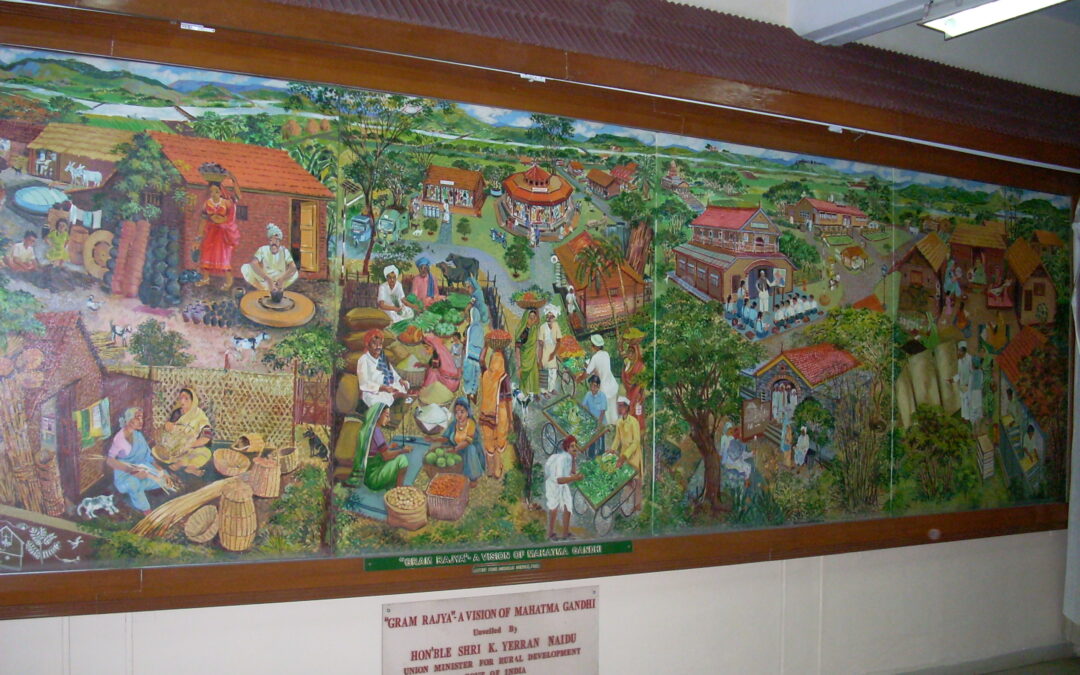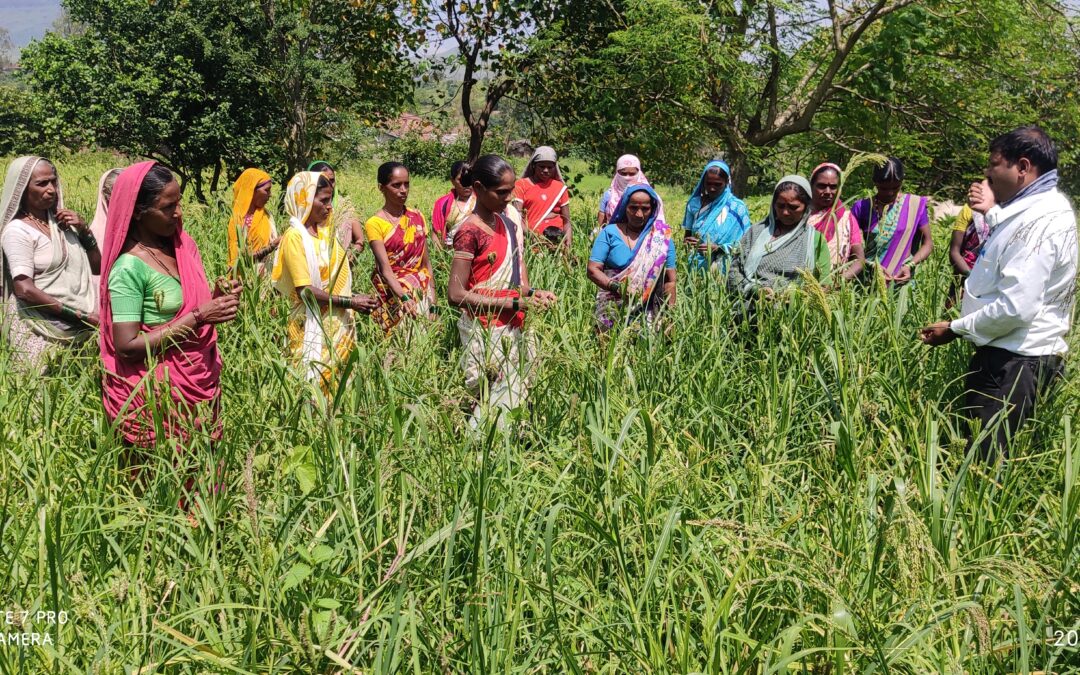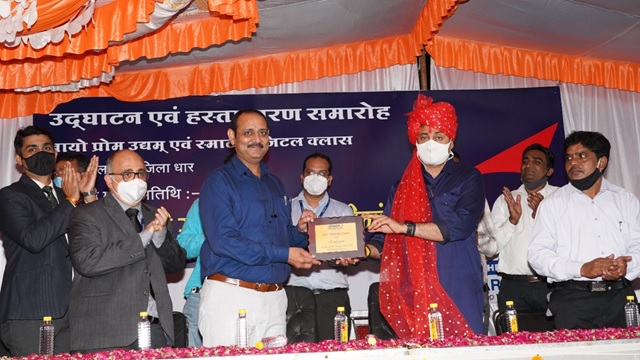
Holistic Programme Launched in Hingoli, Maharashtra with support of HDFC
BAIF Institute for Sustainable Livelihoods and Development, Maharashtra, launched the Holistic Rural Development Programme supported by HDFC Bank Ltd., at Taktoda village, Sengaon in Hingoli district of Maharashtra on December 21, 2021.
The programme covering 11 villages of Hingoli district, included inauguration of a utensil store and a flour mill to ensure additional income generation for women-headed families under the project. Mr. Jitendra Papalkar, District Collector, Mr. Sanjay Daine, CEO, Zilla Parishad, Mr. Shivaraj Ghorpade District Superintendent Agriculture Officer, Hingoli, Dr. P.P. Shelke, Head and Senior Scientist, Prof. Rajesh Bhalerao Subject Specialist, KVK Tondapur, Mr. Anil Olambe, Mr. Ajaykumar Sugave, Dr. Kailas Gite, Mrs. Sridevi Patil, Asst. Police Inspector, Goregaon, Mr. S.R. Bele, Block Development Officer, Sengaon, Mr. Pramod Sawke, Sarpanch and VDC members from the villages graced the occasion.
 The village community took an oath to keep their villages and surrounding environment clean in line with Swachh Bharat Mission of the Government of India. The event was facilitated by the BISLD Maharashtra Project team headed by Mr. Shailesh Bhagat, Additional Chief Programme Executive, Nagpur, who shared an overview of the Holistic Programme and the plan to establish a farmer producer organisation in future. Mr. Shelke highlighted the joint effort of BAIF and KVK in promoting short duration turmeric and BSMR 736 pigeon pea varieties in the project area. Others who spoke on the occasion included the CEO, Zilla Parishad and the District Collector, Hingoli who also highlighted various schemes being implemented by the State Government through the Gram Panchayats. The vote of thanks was proposed by Mr. Dalit Manwar, BISLD. The programme was enriched with good wishes conveyed by Mr. Retish Sinha, Head CSR, HDFC Bank Ltd., Mr. Pavan Dongre CSR Manager, HDFC Bank Ltd., Mr. V.B. Dyasa, Regional Director – Western Region, BAIF and Mr. S.M. Wagle, Chief Programme Executive, BISLD, Maharashtra.
The village community took an oath to keep their villages and surrounding environment clean in line with Swachh Bharat Mission of the Government of India. The event was facilitated by the BISLD Maharashtra Project team headed by Mr. Shailesh Bhagat, Additional Chief Programme Executive, Nagpur, who shared an overview of the Holistic Programme and the plan to establish a farmer producer organisation in future. Mr. Shelke highlighted the joint effort of BAIF and KVK in promoting short duration turmeric and BSMR 736 pigeon pea varieties in the project area. Others who spoke on the occasion included the CEO, Zilla Parishad and the District Collector, Hingoli who also highlighted various schemes being implemented by the State Government through the Gram Panchayats. The vote of thanks was proposed by Mr. Dalit Manwar, BISLD. The programme was enriched with good wishes conveyed by Mr. Retish Sinha, Head CSR, HDFC Bank Ltd., Mr. Pavan Dongre CSR Manager, HDFC Bank Ltd., Mr. V.B. Dyasa, Regional Director – Western Region, BAIF and Mr. S.M. Wagle, Chief Programme Executive, BISLD, Maharashtra.



